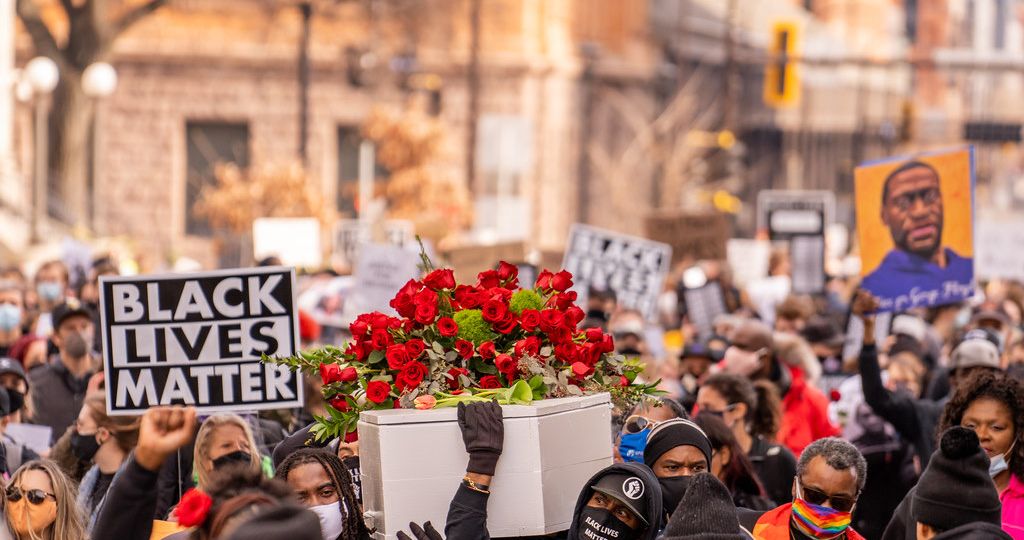
Guilty. Guilty. Guilty: The Trial of Derek Chauvin Reaches a Decision
By Noah Holtgraves, staff writer
In a unanimous decision Tuesday, April 20, 2021, jury members in the trial of former Minneapolis Officer Derek Chauvin handed down guilty verdicts on all three accounts charged, including murder and manslaughter.
Chauvin was found guilty of second-degree unintentional murder, third-degree murder and second-degree manslaughter. His sentence is to come within two months, and his bail was revoked upon sentencing.
Relief swept over downtown Minneapolis at the verdicts reading.
A statement from the Office of the Chancellor at the University of Colorado Boulder reads in part, “As a campus community, we hope this verdict brings some measure of justice to Mr. Floyd’s family, knowing that this decision alone will not redress the inequities that Black, Asian American and other communities of color have experienced for generations.” Read the complete statement here.
Published: 4:33 PM MDT April 20, 2021
Updated: 9:55 AM MDT April 22, 2021
In a unanimous decision Tuesday, April 20, 2021, jury members in the trial of former Minneapolis Officer Derek Chauvin handed down guilty verdicts on all three accounts charged, including murder and manslaughter.
Chauvin was found guilty of second-degree unintentional murder, third-degree murder and second-degree manslaughter. His sentence is to come within two months, and his bail was revoked upon the verdict.
Relief swept over downtown Minneapolis at the verdicts reading.
A statement from the Office of the Chancellor at the University of Colorado Boulder reads in part, “As a campus community, we hope this verdict brings some measure of justice to Mr. Floyd’s family, knowing that this decision alone will not redress the inequities that Black, Asian American and other communities of color have experienced for generations.” Read the complete statement here.
Solace for residents in Columbus, Ohio yesterday was cut short when a police officer shot and killed a Black child after a 911 caller reported a stabbing attempt. Peaceful protests quickly ensued in downtown Columbus.
President Joe Biden spoke more candidly following the verdict, saying George Floyd’s death was “a murder in full light of day,” and the conviction of Chauvin “can be a giant step forward,” while adding, “it’s not enough.”
Not 24 hours later, the U.S. Justice Department announced it is launching an investigation into discrimination and excessive force in the Minneapolis Police Department. In the announcement, Attorney General Merrick B. Garland said the probe “will assess whether the Minneapolis Police Department engages in a pattern or practice of using excessive force, including during protests.”
University of Colorado Boulder Law Professor Aya Gruber followed the trial while in line for her second COVID-19 vaccine. She was not as surprised at the verdict as many around the nation.
“It’s very sad that so many people were surprised, and so many people just didn’t even think this would be a case,” Gruber said. “The reason why is because of the history of police violence being tolerated, not just through their not being convictions, but also just through not changing policies.”
Gruber explained many factors were required to reach the verdict today and emphasized the unique moment this case occupied. Extensive evidence, witness testimony, nationwide protests and a rare breakdown in the blue wall of silence combined with worldwide attention made this case unique.
“We don’t know what’s going to happen when the eyes of the world aren’t on the police,” Gruber said. “Even if police chiefs are now willing to go on the record saying individual cops who were seniors on the force, who received medals, who they trained and had on the force for 19 years, were rogue actors– Is that really going to move the needle?”
While Gruber thought the prosecution was vigorous, she expressed disappointment at a statement made in their closing remarks.
“The prosecution really did emphasize that Derek Chauvin is on trial,” Gruber said. “Policing is not on trial, and this case is a pro-police case because it recognizes that this is not the police. This is just him.”
Many around the nation felt that policing was on trial, and while acknowledging the strategic implications of this closing remark, Gruber thought the defense could have omitted the clarification.
As far as the more significant implications for this case, Gruber stressed that policing in the U.S. is not solely solvable through magnetic trials of a singular cop.
“It is not nothing, right?” Gruber asked rhetorically. “It’s some little bit of a raft in a sort of sea of disappointment and despair for many Black Americans. But when the only way we can get that is through just putting an individual person in jail, that’s not the finish line.”

